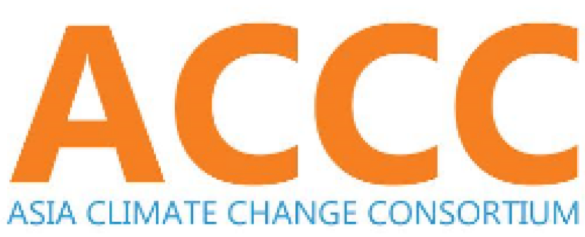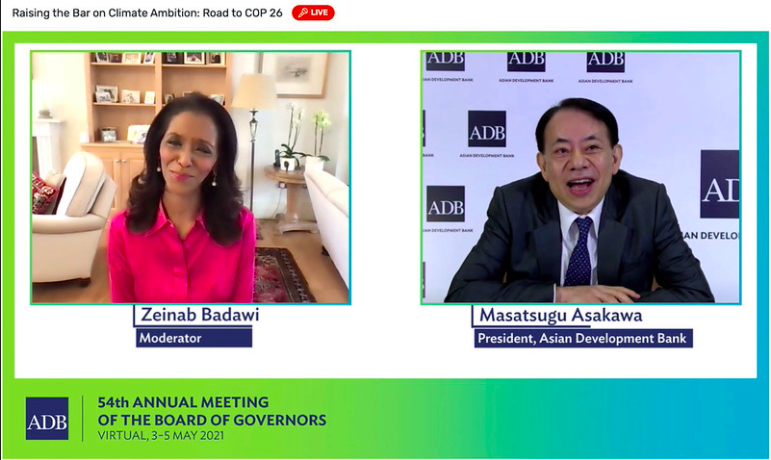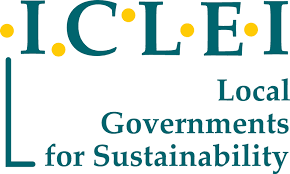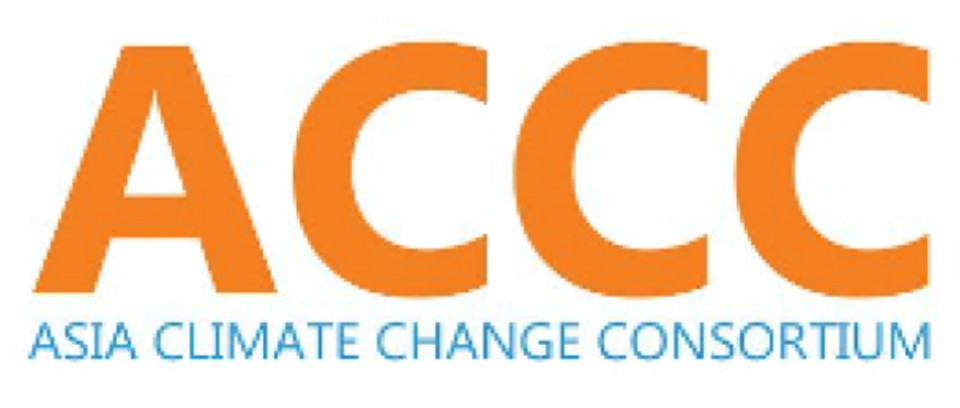Manila, Philippines, 4 May 2021 – Asian Development Bank (ADB) President Masatsugu Asakawa remarked at the ADB’s 54th Annual Meeting that 50% of the total greenhouse gas emissions is from Asia. He also acknowledged the call of small island nations particularly in the Pacific for higher investments in climate adaptation and resilience. Finally, he outlined ADB’s plans on ramping up investments and loan windows for climate adaptation and resilience.
The Asia Climate Change Consortium (ACCC)[1] lauds the ADB under Mr. Asakawa’s leadership for this direction as the region is home to the greatest number of people greatly impacted by climate change. The Global Climate Risk Index 2020[2], presented by Germanwatch Institute during COP25 in Madrid, names five out of ten countries in Asia and the Pacific to be greatly affected by climate change in 2020. They are Japan, the Philippines, India, Sri Lanka, and Fiji. Moreover, many of the countries in the region have high poverty incidence as well as income disparity, making a large portion of the population highly vulnerable to climate and disaster-related shocks.
We, however, note with grave concern the ADB President’s non-mention of the bank’s plans to end fossil fuel loans in the soonest possible time. ADB remains non-committed in phasing out fossil fuel loans particularly shown in their refusal to sign on to the commitment during the Finance in Common Summit[3] in November 2020. This is disconcerting, as Mr. Asakawa even prefaced his remarks with the level of carbon emissions that Asia is producing but fails to show a strong commitment on climate mitigation by ending fossil fuel loans.
Hence, it is with great urgency that we join the call on the ADB to urgently end fossil fuel loans as well as help its member countries increase their renewable energy portfolio to enable the just transition to a net-zero emissions, climate-resilient Asia.
[1] Formed in 2016, ACCC, a regional climate advocacy and learning platform with members of local and national organizations, networks, and faith-based communities across Asia and the Pacific, ramps up the peoples’ voices in the region and in the global levels. Guided by climate experts and advocates, ACCC developed its positions that are consistent with members’ work in their respective countries. It advocates and works towards a common agenda of ensuring temperature limit of 1.5 degrees Celsius or well below. For more information, please visit https://www.asiaclimateconsortium.org/.
[2] Eckstein, D., Künzel, V., Schäfer, L., Winges, M. (2020). Global Climate Risk Index 2020: Who Suffers Most from Extreme Weather Events? Weather-Related Loss Events in 2018 and 1999 to 2018. Retrieved from https://germanwatch.org/sites/germanwatch.org/files/20-2-01e%20Global%20Climate%20Risk%20Index%202020_10.pdf.
[3] See https://www.climatechangenews.com/2020/11/11/asian-development-banks-resist-coal-phase-commitment-french-summit/.





 c/o Rice Watch Action Network
c/o Rice Watch Action Network